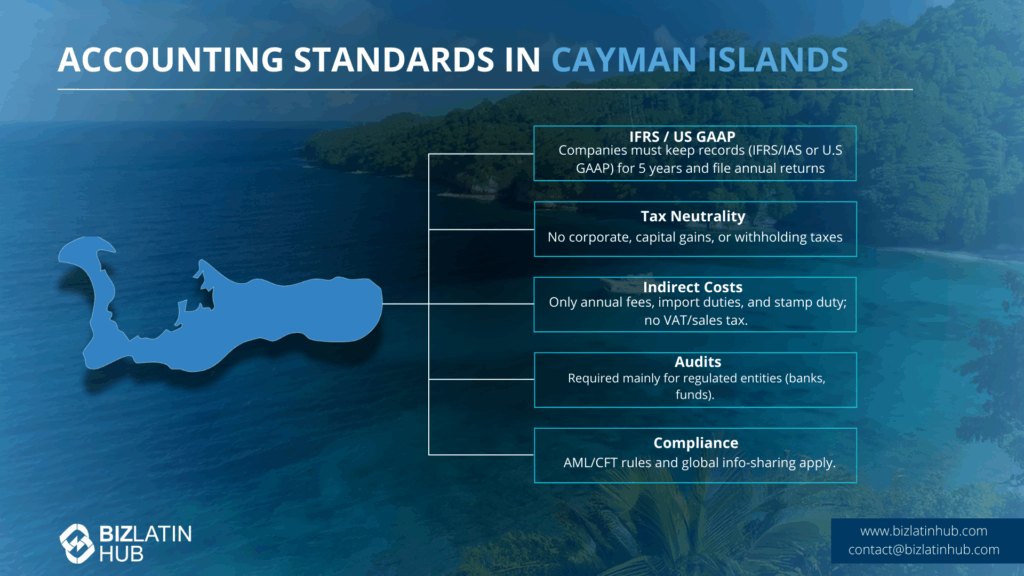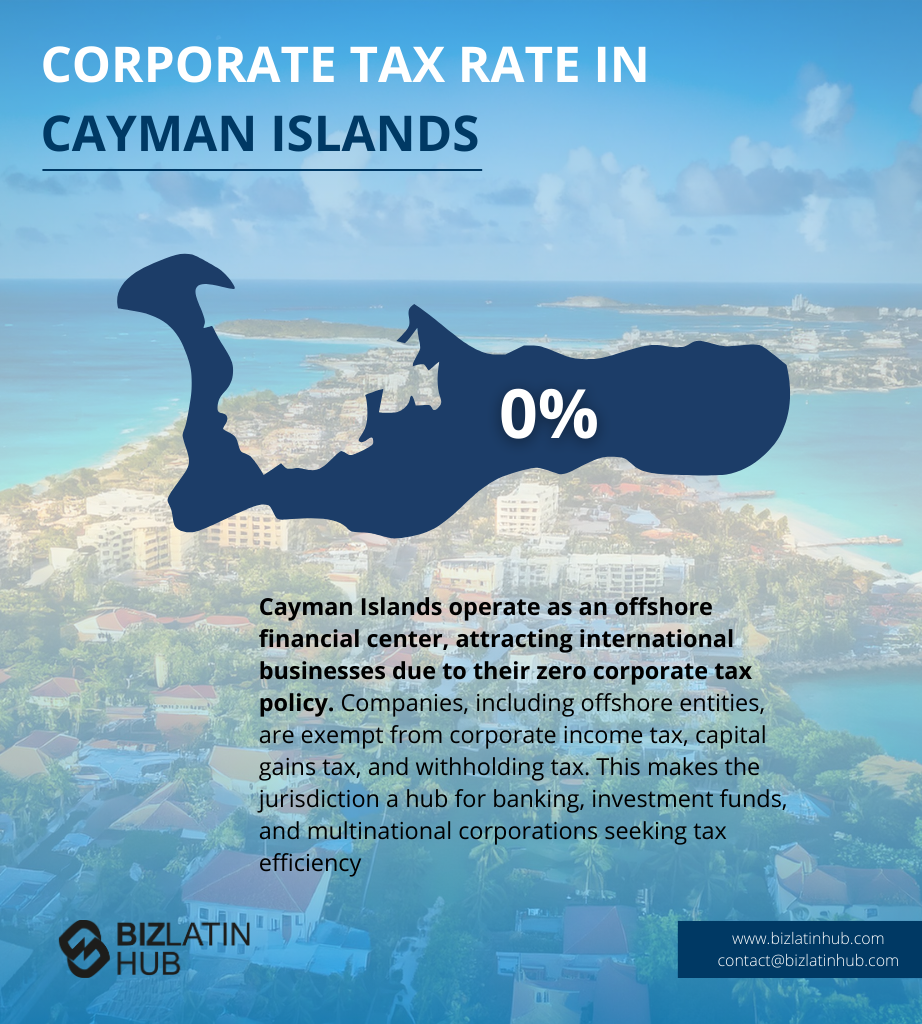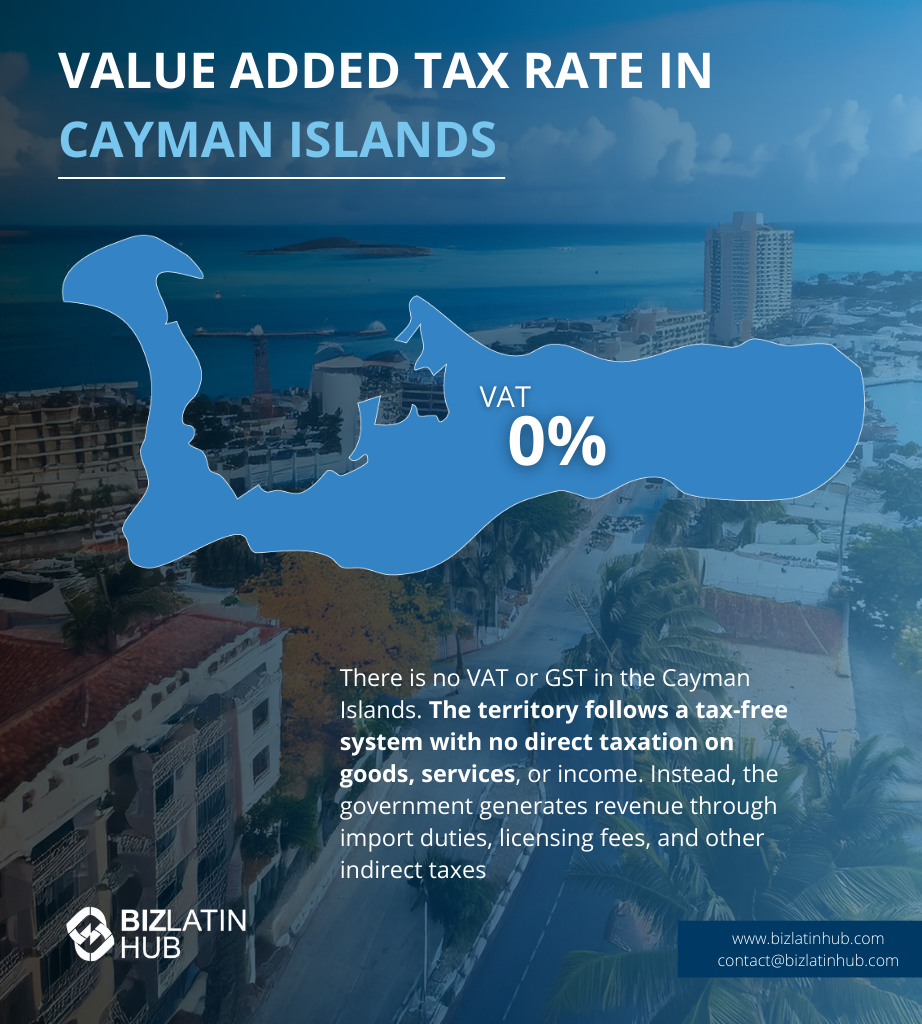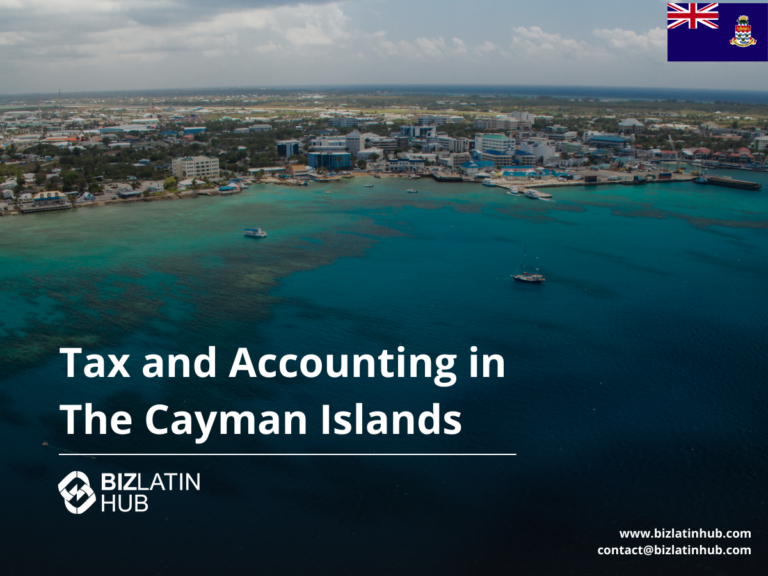The Cayman Islands, a picturesque paradise in the Caribbean, are not only known for their stunning beaches and crystal-clear waters but also for their thriving financial services sector. For businesses and individuals looking to explore the world of accounting and taxation, understanding the regulations in the Cayman Islands is essential. This article provides a comprehensive overview of accounting and taxation in this unique jurisdiction, offering invaluable insights for those considering company formation in the Cayman Islands. This guide explains the regulatory obligations that replace traditional taxation, specifically the critical Economic Substance rules.
Key Takeaways On Tax and Accounting Requirements in the Cayman Islands
| What accounting standards are typically used in the Cayman Islands? | In the Cayman Islands, companies are required to adhere to International Financial Reporting Standards (IFRS), also known as International Accounting Standards (IAS). Companies operating in the Cayman Islands must maintain financial records per IFRS/IAS to meet international standards. An annual return must be filed with the Registrar of Companies. Companies must maintain accurate financial records for a minimum of five years. |
| Is there a corporate income tax in the Cayman Islands? | Companies in the Cayman Islands are not subject to a corporate tax rate, making it an attractive destination for businesses seeking tax efficiency. |
| What are the main indirect taxes or fees for businesses? | Businesses must pay an annual registration fee to the government to remain in good standing. Other costs include import duties and stamp duty on property transactions. There is no value-added tax (VAT) or sales tax. |
| What Is The Cayman Value Added Tax Rate? | Unlike some countries, the Cayman Islands does not have a Value Added Tax (VAT) or equivalent tax, making it easier for businesses to manage their financial operations. |
| Dividend Tax Rate in the Cayman Islands | The Cayman Islands does not impose withholding tax on dividends, interest, or royalties paid to non-residents, simplifying international transactions. |
| Are audited financial statements required? | While there are some exceptions and reductions in demand, especially for offshore companies, all company types do have to file some records. |

Tax Requirements in the Cayman Islands
The Cayman Islands is a tax-neutral jurisdiction, meaning it does not impose direct taxes on corporations or individuals. This is a primary factor that attracts international business and investment.
Tax Neutrality
The Cayman Islands does not impose any form of direct taxation on company profits, capital gains, or distributions. This applies to all company types, including the popular exempted company structure.
Indirect Taxes and Fees
Businesses must pay an annual registration fee to the government to remain in good standing. Other costs include import duties and stamp duty on property transactions. There is no value-added tax (VAT) or sales tax.
Accounting Standards – IFRS/IAS in the Cayman Islands:
Like many parts of the world, companies operating in the Cayman Islands must adhere to International Financial Reporting Standards (IFRS), also known as International Accounting Standards (IAS).
This global accounting framework provides a standardized method for reporting financial information, ensuring transparency and comparability.
When seeking accounting services in the Cayman Islands, it is imperative to engage experts who are well-versed in IFRS/IAS, as compliance with these standards is essential.
Non-compliance with accounting standards can result in substantial fines, starting at a minimum of USD$200.
The potential maximum fine can reach a staggering USD$45,000, considering the significant value of the US dollar.
Corporate Taxation in the Cayman Islands:
One of the primary attractions of the Cayman Islands for businesses is its favorable tax environment. The Cayman Islands does not impose corporate income tax, which is a significant advantage for companies looking to establish a presence in this jurisdiction.
However, this unique tax structure does not mean businesses are entirely exempt from taxation obligations. Let’s explore the key aspects of corporate taxation in the Cayman Islands:
No Corporate Income Tax: Unlike many other countries, the Cayman Islands does not levy corporate income tax, which is a significant benefit for businesses of all sizes.
No Capital Gains Tax: Capital gains earned by businesses are also not subject to taxation in this jurisdiction, further enhancing its appeal.
No Withholding Tax: The Cayman Islands does not impose withholding tax on dividends, interest, or royalties paid to non-residents, simplifying international transactions.
No Value Added Tax (VAT): Unlike some countries, the Cayman Islands does not have a Value Added Tax (VAT) or equivalent tax, making it easier for businesses to manage their financial operations.
Import Duties and Fees: While direct corporate taxes are not applicable, the Cayman Islands does impose import duties and fees on certain goods and services.
Annual Fees: Companies registered in the Cayman Islands must pay an annual fee to maintain their legal status and continue conducting business.

Accounting and Financial Reporting Requirements
The Cayman Islands, as an offshore financial center, has specific reporting requirements tailored to ensure transparency and compliance with international standards. Unlike the monthly tax reporting requirements in some jurisdictions, the Cayman Islands follows a different approach to reporting:
Maintaining Financial Records
All companies are required by the Companies Act to keep proper books of account. These records must correctly explain all transactions and be sufficient to determine the company’s financial position with reasonable accuracy. Records must be kept for a minimum of five years.
Expert Tip: The “Holding Company” Classification
From our experience, many clients assume that because they have a “Holding Company,” they are exempt from reporting. In reality, a Pure Equity Holding Company is a specific classification under Economic Substance Law that has reduced, but still mandatory, reporting requirements.
You must confirm you comply with statutory filing obligations to pass the substance test. We advise verifying your entity’s precise classification annually to ensure the correct notification is filed with the Registrar, as penalties for non-compliance are severe.
Accounting Standards
While there is no prescribed local standard for all companies, financial statements are typically prepared in accordance with International Financial Reporting Standards (IFRS) or US Generally Accepted Accounting Principles (US GAAP).
Depending on the size and nature of their operations, companies in the Cayman Islands may be required to have their financial statements audited by an independent auditor. This step further ensures the accuracy and reliability of financial reporting.
Anti-Money Laundering (AML) and Counter Financing of Terrorism (CFT) regulations are crucial for the Cayman Islands’ reputation as a trustworthy financial center. Companies in the jurisdiction must adhere to these regulations, which help safeguard against financial crimes.
Annual Return Filing
Each year, a company must submit an annual return to the Registrar of Companies. This is a simple declaration confirming that the company has complied with the provisions of the Companies Act.
Companies registered in the Cayman Islands must prepare and submit annual financial statements in compliance with IFRS/IAS. These statements provide an accurate depiction of the company’s financial status, essential for transparency and accountability.
The Cayman Islands has implemented measures to enhance tax transparency. This includes the automatic exchange of financial information with tax authorities in other jurisdictions as part of global efforts to combat tax evasion and promote financial transparency.
Economic Substance (ES)
While there is no tax return, “Relevant Entities” carrying out “Relevant Activities” (such as fund management, distribution, or holding company business) must file an annual Economic Substance Notification. This confirms whether they meet the test for having adequate presence and activity in the islands.

Frequently Asked Questions: Cayman Islands Tax & Accounting
Based on our experience these are the common questions and doubts of our clients.
The Cayman Islands are known for their business-friendly tax environment, and one of the key advantages is the absence of corporate income tax. Companies in the Cayman Islands are not subject to a corporate tax rate, making it an attractive destination for businesses seeking tax efficiency.
Unlike many other countries, businesses in the Cayman Islands are not taxed on their income. There is no corporate income tax, capital gains tax, or withholding tax on dividends, interest, or royalties paid to non-residents. Instead, the Cayman Islands relies on alternative revenue sources, such as import duties and annual company fees to maintain their legal status.
The tax authority in the Cayman Islands is the Department for International Tax Cooperation (DITC). They are responsible for overseeing international tax compliance, including the collection and exchange of financial information with other jurisdictions, as part of global efforts to enhance tax transparency.
In the Cayman Islands, companies are required to adhere to International Financial Reporting Standards (IFRS), also known as International Accounting Standards (IAS). These global accounting standards provide a standardized framework for financial reporting, ensuring transparency and comparability. Companies operating in the Cayman Islands must maintain financial records per IFRS/IAS to meet international standards.
The equivalent of a Certified Public Accountant (CPA) in the Cayman Islands is a Chartered Professional Accountant (CPA). CPAs are highly qualified professionals who provide expert accounting and financial services, ensuring compliance with international accounting standards and tax regulations.
Yes, the Cayman Islands report following International Financial Reporting Standards (IFRS). These global accounting standards ensure consistency and transparency in financial reporting. Compliance with IFRS is crucial for businesses operating in the Cayman Islands, as it aligns them with international accounting best practices.
Tax neutral means the jurisdiction does not levy direct taxes. In the Cayman Islands, there is no corporate income tax, capital gains tax, withholding tax, or property tax.
Yes, there are indirect taxes and fees. These include import duties on goods brought into the islands, stamp duty on legal documents, and annual government licensing fees for companies.
Most exempted companies are not required to have their financial statements audited annually. However, regulated entities, such as banks or mutual funds, are subject to mandatory audit requirements overseen by the Cayman Islands Monetary Authority (CIMA).
If a company fails to file its annual return and pay its annual fee to the Registrar of Companies, it will fall out of good standing and incur penalties. If the failure persists, the Registrar has the authority to strike the company from the register.
The Cayman Islands Monetary Authority (CIMA) is the primary financial services regulator.
Biz Latin Hub can help you understand the accounting and taxation requirements in the Cayman Islands.
Navigating the accounting and taxation landscape in the Cayman Islands is essential for individuals and corporations looking to operate in this jurisdiction. Whether it’s compliance with IFRS/IAS, understanding the absence of corporate income tax, or adhering to international transparency standards, staying informed and seeking professional advice is key to success in the Cayman Islands’ financial world.
Biz Latin Hub can help you with expert guidance from qualified accountants and legal professionals. With a business-friendly tax environment and a commitment to international accounting standards, the Cayman Islands offer a unique financial landscape for those seeking opportunities in the global marketplace. Contact us now.






